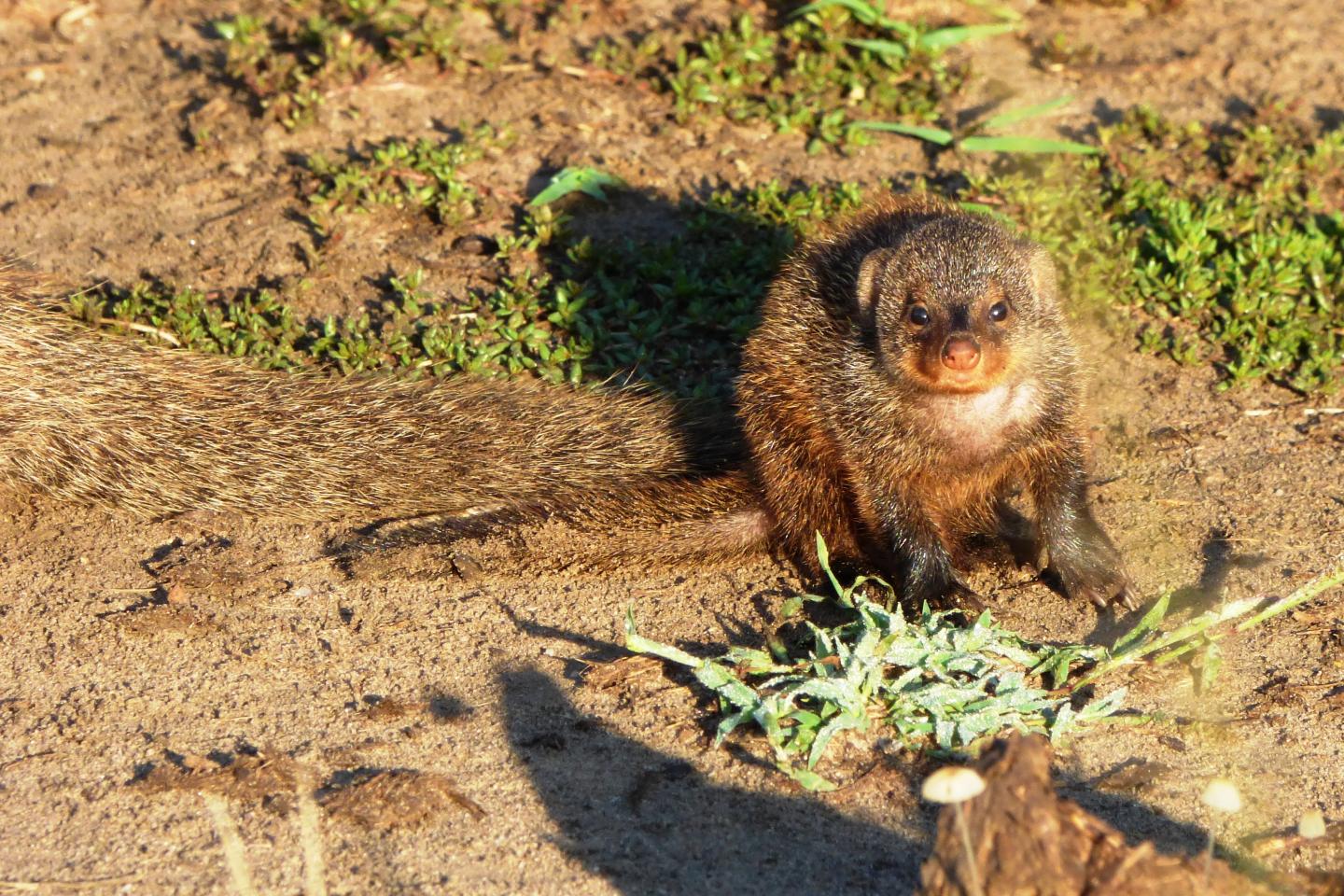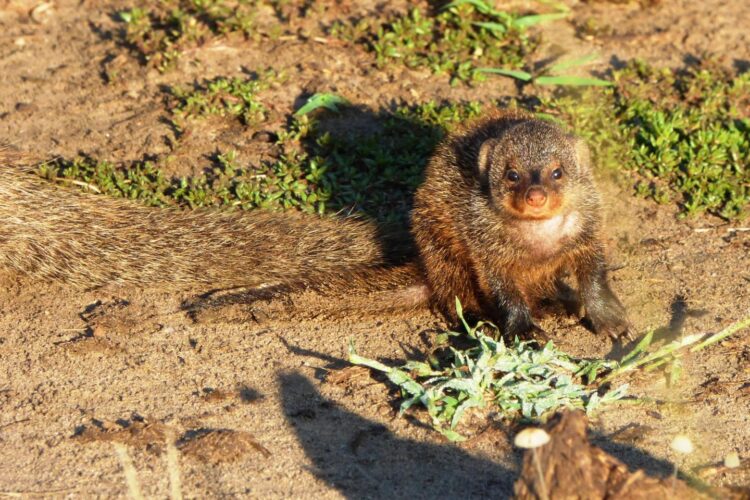Inbreeding can reduce cooperation in banded mongooses according to a recent study by researchers

Credit: Dr Hazel Nichols
Inbreeding can reduce cooperation in banded mongooses according to a recent study by researchers.
A team from Swansea University, University of Bielefeld and University of Exeter studied inbreeding and cooperative care in banded mongooses – an African mammal which lives in colonies with a complex social structure.
In the 1930s it was proposed that for mammals to evolve complex cooperative societies similar to those seen In bees and wasps, they would have to become highly inbred so that all colony members were genetically related.
This would mean that when they helped other members of their colonies to reproduce, they would be passing down copies of their own genes. However, this kind of society seems to be very rare in nature, and most cooperative mammals go to some effort to avoiding inbreeding.
In banded mongooses that live wild in Uganda, nearly one in 10 pups are the product of brother-sister or father-daughter mating. The team of researchers found that this species may be able to tolerate this high level of inbreeding because the adults in the group provide pups with a lot of one-to-one care that reduces the effects of inbreeding depression.
Inbred pups that get a lot of care in their first three months of life have the same survival chances as outbred pups, while inbred pups that don’t receive much care usually die young.
However, in an interesting twist, inbreeding depression eventually catches up with them. The inbred pups that survive because they get a lot of care become bad carers when they are older. This means that the next generation gets a reduced level of care when the adults in the group are inbred.
This may explain why banded mongooses often try not to inbreed, with some individuals risking getting into potentially fatal fights with rival groups in order to breed with unrelated mates.
Dr Hazel Nichols, senior lecturer in biosciences at Swansea University and co-author of the study said: “The complex social lives of banded mongooses never cease to amaze me. They have showed us that, instead of promoting cooperation, inbreeding can, in fact, hinder it.”
###
Media Contact
Ben Donovan
[email protected]
Related Journal Article
http://dx.





